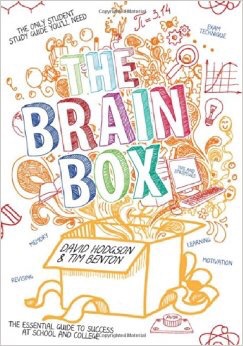It’s good to work together.
A problem shared is a problem halved.
So divide up the work and put your heads together.
You learn one bit.
Your mate can learn another bit.
Then come back together and teach each other. You’ll learn it because:
- You have to teach it.
- It’s easier to learn from our friends.
Tim Says:
I used to live in Dudley.
There were two year 11 lads there who were fast approaching their GCSEs.
They had to revise, but they’d rather play basketball.
So what did they do?
They took their books down to the basketball court. One would ask the other a question. If he got it right, he got a shot at the basket. If he scored, he got to answer another question. If he missed, or got the answer wrong, they swapped.
Then more of their mates joined in.
Then their girlfriends came along too.
Soon there were about a dozen of them, at the basketball court, taking shots at the basket and quizzing each other for their exams.
And that’s how they did their revision: working smart. Not hard.
Teacher tip:
Why not have a mini basket ball hoop in your class? If students get an answer correct, they have a shot at the hoop. Motivation!


